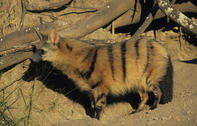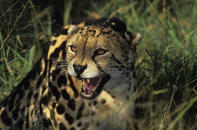Land and Conflict
In 1950, Willie Schurmann, the father of Lente Roode, purchased a 2000 hectare piece of farmland in the Hoedspruit district. This land was used for sheep and cattle farming, which began a battle with the big cats in the area, as they posed a threat to his livestock.

Many lions, leopards and cheetah were shot on sight to try to protect the farms stock. Lente spent her childhood on the farm and developed a deep and lasting passion for the welfare of animals and the South African bush. At the age of six, Lente was given an orphaned cheetah cub to nurse, as its mother had been shot by a farmer from a neighbouring farm.
She called the cub Sebeka, and between her mother and herself nursed the cub, which became part of the Schurmann household. Lente and Sebeka became inseparable for many years and deepened Lente’s bond with wildlife.
Kapama is Formed

Lente Roode, nee Schurmann, married Johann Roode and together the couple purchased their own farm in 1986, which was on the border of her father’s farm. They bought Moria farm as grazing land for their Bonsmara cattle. When the land became insufficient they purchased a second plot of land, Drakensig, to feed their growing herd.
After her father's death, Lente inherited his farm, creating a sizeable tract of land. With more land and more livestock, there was the inevitable escalation of conflict with predators. A year later the Roode's made the decision to shift their interest from farming and their battle with predators to ecotourism, and so developed Kapama Private Game Reserve.
Construction started in 1989. Where Moria farm once stood, now stands Buffalo Camp and on the plot of Drakensig, now River Lodge can be found. Johann Roode died in 2002, but Lente and her family still own and manage the camps, making Kapama the largest family-owned reserve in the area. Since 2002 the lodge has grown through the purchase of Gwala Gwala and Hongonyi, which has become the sites of Southern Camp and Karula respectively.